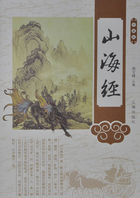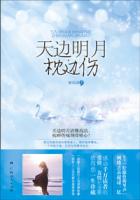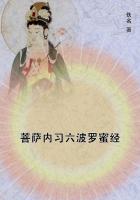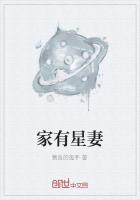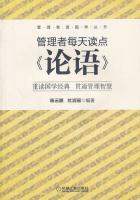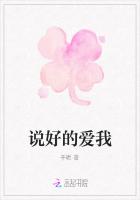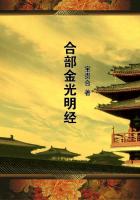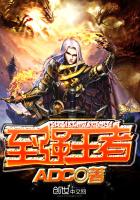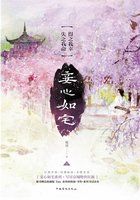Mrs Winter--Edith's mother--is a very old lady; she has gone to bed. And I dare say you wouldn't care to see Mrs Carter to-night?'
'No, no! only you and Willie.'
'When the doctor comes hadn't you better ask his advice for yourself?'
'We shall see. Don't trouble about me.'
They went softly up to the first floor, and entered a bedroom.
Fortunately the light here was very dim, or the nurse who sat by the child's bed must have wondered at the eccentricity with which her patient's father attired himself. Bending over the little sufferer, Reardon felt for the first time since Willie's birth a strong fatherly emotion; tears rushed to his eyes, and he almost crushed Amy's hand as he held it during the spasm of his intense feeling.
He sat here for a long time without speaking. The warmth of the chamber had the reverse of an assuaging effect upon his difficult breathing and his frequent short cough--it seemed to oppress and confuse his brain. He began to feel a pain in his right side, and could not sit upright on the chair.
Amy kept regarding him, without his being aware of it.
'Does your head ache?' she whispered.
He nodded, but did not speak.
'Oh, why doesn't the doctor come? I must send in a few minutes.'
But as soon as she had spoken a bell rang in the lower part of the house. Amy had no doubt that it announced the promised visit.
She left the room, and in a minute or two returned with the medical man. When the examination of the child was over, Reardon requested a few words with the doctor in the room downstairs.
'I'll come back to you,' he whispered to Amy.
The two descended together, and entered the drawing-room.
'Is there any hope for the little fellow?' Reardon asked.
Yes, there was hope; a favourable turn might be expected.
'Now I wish to trouble you for a moment on my own account. Ishouldn't be surprised if you tell me that I have congestion of the lungs.'
The doctor, a suave man of fifty, had been inspecting his interlocutor with curiosity. He now asked the necessary questions, and made an examination.
'Have you had any lung trouble before this?' he inquired gravely.
'Slight congestion of the right lung not many weeks ago.'
'I must order you to bed immediately. Why have you allowed your symptoms to go so far without--'
'I have just come down from London,' interrupted Reardon.
'Tut, tut, tut! To bed this moment, my dear sir! There is inflammation, and--'
'I can't have a bed in this house; there is no spare room. I must go to the nearest hotel.'
'Positively? Then let me take you. My carriage is at the door.'
'One thing--I beg you won't tell my wife that this is serious.
Wait till she is out of her anxiety about the child.'
'You will need the services of a nurse. A most unfortunate thing that you are obliged to go to the hotel.'
'It can't be helped. If a nurse is necessary, I must engage one.'
He had the strange sensation of knowing that whatever was needful could be paid for; it relieved his mind immensely. To the rich, illness has none of the worst horrors only understood by the poor.
'Don't speak a word more than you can help,' said the doctor as he watched Reardon withdraw.
Amy stood on the lower stairs, and came down as soon as her husband showed himself.
'The doctor is good enough to take me in his carriage,' he whispered. 'It is better that I should go to bed, and get a good night's rest. I wish I could have sat with you, Amy.'
'Is it anything? You look worse than when you came, Edwin.'
'A feverish cold. Don't give it a thought, dearest. Go to Willie.
Good-night!'
She threw her arms about him.
'I shall come to see you if you are not able to be here by nine in the morning,' she said, and added the name of the hotel to which he was to go.
At this establishment the doctor was well known. By midnight Reardon lay in a comfortable room, a huge cataplasm fixed upon him, and other needful arrangements made. A waiter had undertaken to visit him at intervals through the night, and the man of medicine promised to return as soon as possible after daybreak.
What sound was that, soft and continuous, remote, now clearer, now confusedly murmuring? He must have slept, but now he lay in sudden perfect consciousness, and that music fell upon his ears.
Ah! of course it was the rising tide; he was near the divine sea.
The night-light enabled him to discern the principal objects in the room, and he let his eyes stray idly hither and thither. But this moment of peacefulness was brought to an end by a fit of coughing, and he became troubled, profoundly troubled, in mind.
Was his illness really dangerous? He tried to draw a deep breath, but could not. He found that he could only lie on his right side with any ease. And with the effort of turning he exhausted himself; in the course of an hour or two all his strength had left him. Vague fears flitted harassingly through his thoughts.
If he had inflammation of the lungs--that was a disease of which one might die, and speedily. Death? No, no, no; impossible at such a time as this, when Amy, his own dear wife, had come back to him, and had brought him that which would insure their happiness through all the years of a long life.
He was still quite a young man; there must be great reserves of strength in him. And he had the will to live, the prevailing will, the passionate all-conquering desire of happiness.
How he had alarmed himself! Why, now he was calmer again, and again could listen to the music of the breakers. Not all the folly and baseness that paraded along this strip of the shore could change the sea's eternal melody. In a day or two he would walk on the sands with Amy, somewhere quite out of sight of the repulsive town. But Willie was ill; he had forgotten that. Poor little boy! In future the child should be more to him; though never what the mother was, his own love, won again and for ever.
Again an interval of unconsciousness, brought to an end by that aching in his side. He breathed very quickly; could not help doing so. He had never felt so ill as this, never. Was it not near morning?

